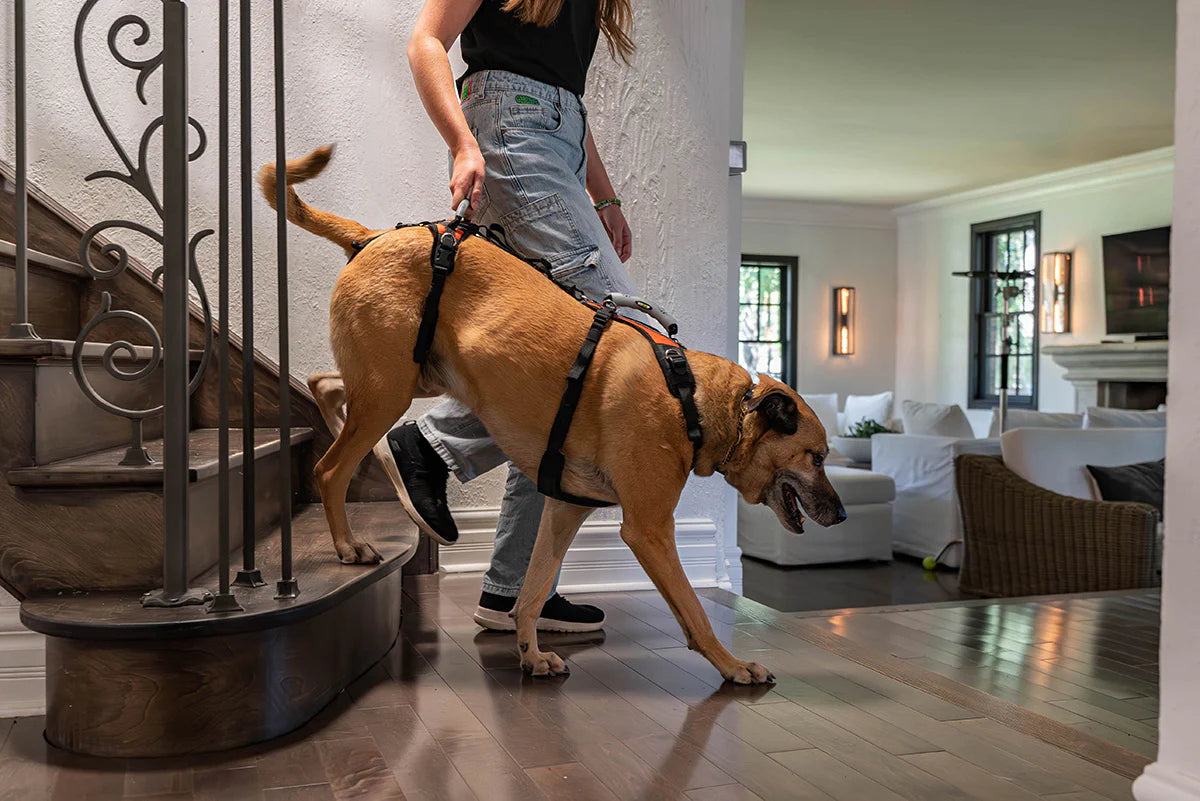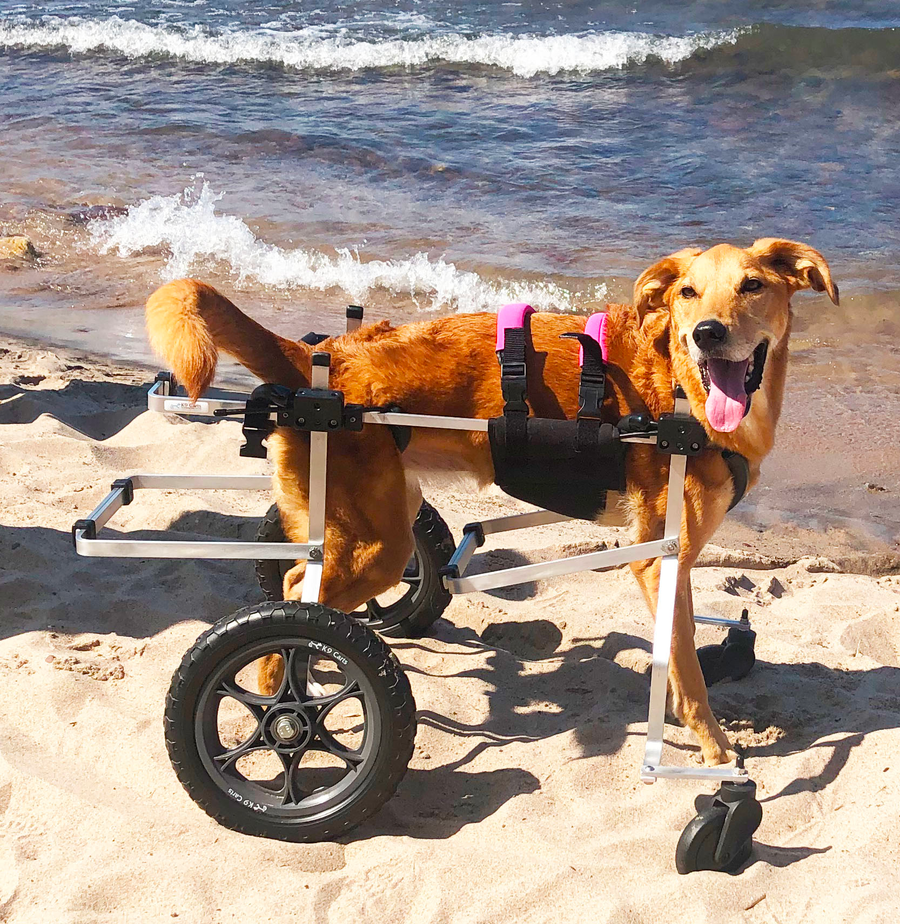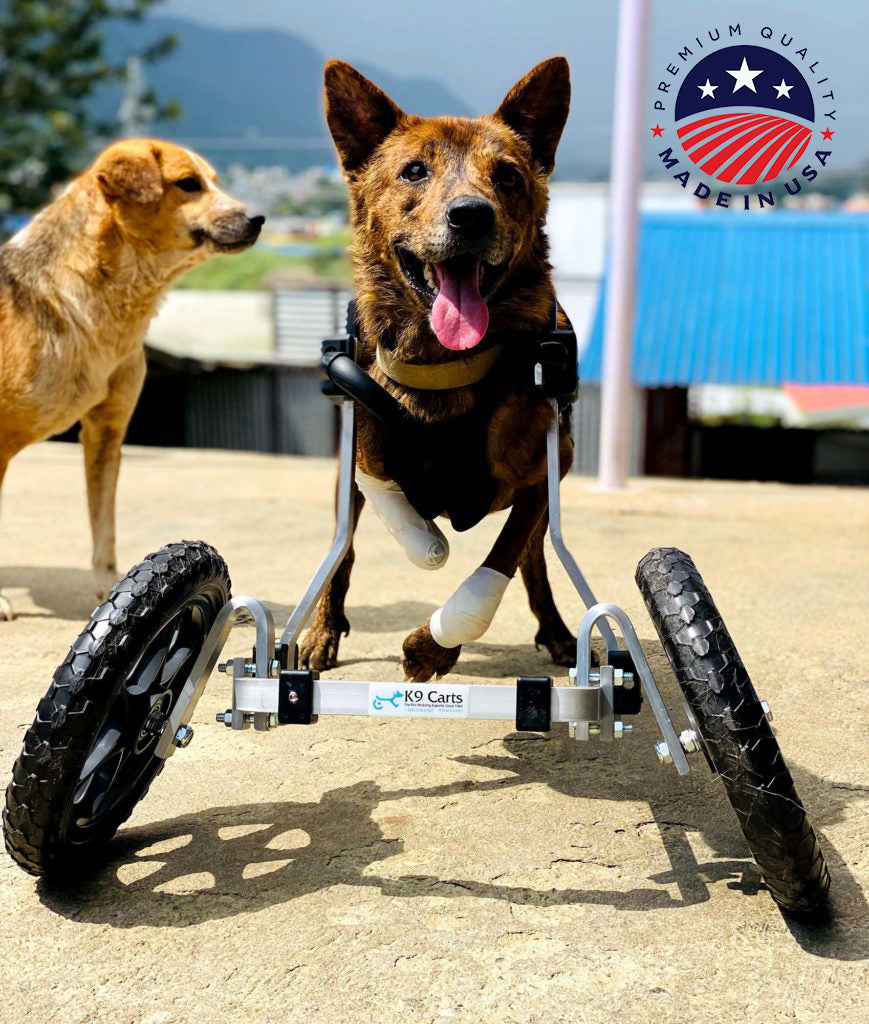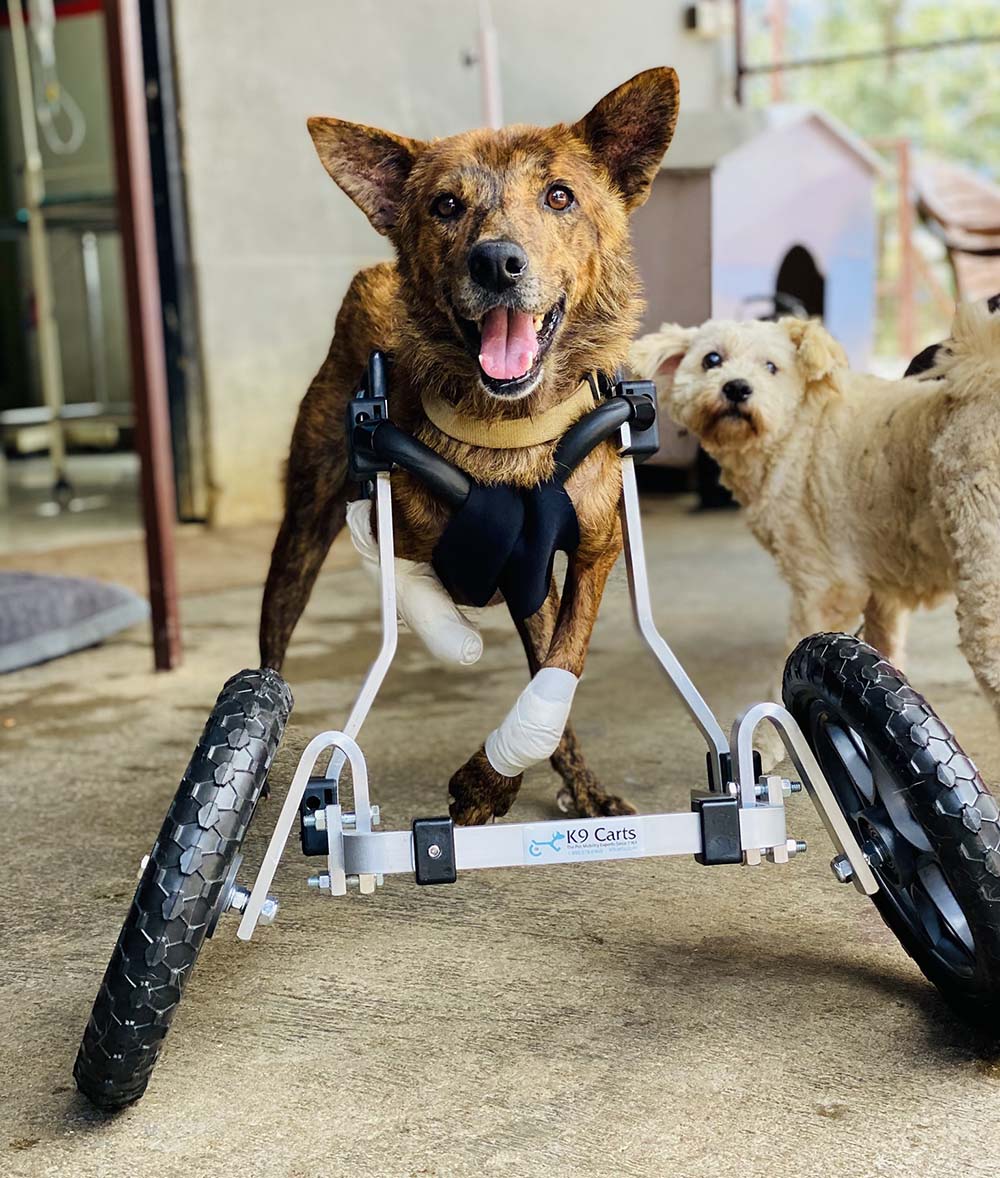Boxer Health Problems
Your Boxer is an energetic, friendly dog that was bred in Germany in the 19th century. They were bred from a German hunting dog that was crossbred with English bulldogs. Boxers are well-loved, high-energy family dogs that are sweet with children and vigilant guards of the family home.
Some of the conditions that afflict Boxers have a genetic basis, and are more likely to happen to Boxers than to dogs of other breeds. Responsible breeders screen for these conditions, and when possible, avoid breeding dogs with those traits. But these conditions can still happen. Boxers are more likely to develop health problems such as heart problems, degenerative myelopathy, bloat, and ulcerative colitis than other dogs.
Boxer Cardiomyopathy
Boxers are more likely to develop a specific heart condition than other dogs. The condition, Boxer cardiomyopathy, is actually named after the breed, though other dogs can develop it. The condition can be fatal to your Boxer if it’s unrecognized: Boxer cardiomyopathy causes an irregular heartbeat, and in severe cases may result in weakness or sudden death.
The most common sign a dog has Boxer cardiomyopathy is if it has trouble breathing. Your dog might cough or wheeze frequently. Your dog might start panting during walks or playtime. If you think your dog might have Boxer cardiomyopathy, you should avoid exercise until the dog can be examined by its veterinarian.
Degenerative Myelopathy in Boxers
Degenerative myelopathy is a nerve disease that starts in a Boxer’s spinal cord. If your Boxer suffers from degenerative myelopathy, you’ll begin to notice that the dog will lose motor function in its hind legs—like it’s getting clumsy. Eventually the weakness will be more apparent, with loss of bowel and urinary control. The dog might struggle to get up because the disease also causes muscle atrophy. Boxers with degenerative myelopathy can become paralyzed by the disease.
There is no cure for degenerative myelopathy. But if your Boxer has the disease, there are a few things you can do to help them suffer less. Kinesiology tape has been used successfully to help dogs with degenerative myelopathy. You can also give them a comfortable bed: they’ll need it, because of the mobility problems. Make sure they’re cleaned and trimmed often. A dog that spends lots of time lying down is at risk of bedsores.
Boxers that become partially paralyzed by degenerative myelopathy are candidates for wheelchairs. Dog wheelchairs can help to slow down the progression of degenerative myelopathy by removing stress on the joints and allowing more mobility and exercise. Both stress and lack of exercise can contribute greatly to the progression of the disease. Custom-built wheelchairs for dogs like the ones we build at K9 Carts can go a long way in preserving a dog’s mobility and giving an animal a decent quality of life.
Boxers with Bloat
Bloat, or gastric dilation, is another health risk that boxers are more likely to suffer from than other dogs. Bloat is a potentially fatal stomach condition that is common in large dogs with deep chests, like boxers and shepherds. Bloat is caused by unhealthy eating habits: if a Boxer eats one large meal a day, or eats too quickly, they run the risk of bloat.
You can reduce the risk of your boxer having bloat by monitoring your dog’s eating habits. If you notice your dog likes to scarf its food, you can give it smaller meals throughout the day. Also, make sure your Boxer does not run around or get over-excited within an hour or two of meals. Panting can cause a dog to swallow air, further expanding the stomach and contributing to bloat.
Bloat happens when a dog’s stomach becomes over-filled with food. If a vet suspects that your dog has bloat, they’ll try to get a stomach tube to pass through your dog’s throat. They’ll also take an x-ray to make sure the condition isn’t more serious.
Bloat can sometimes result in Gastric Dilatation and Volvulus. In GDV, the over-filled stomach twists around, cinching the ends closed. This is a true emergency, requiring immediate surgery. Nothing can escape from the twisted stomach, and the blood supply to the stomach and spleen is compromised. In a few hours, the dog can die from loss of blood supply to the stomach as well as physiologic shock.
It’s much better to try to prevent your Boxer from getting bloat in the first place.
Ulcerative Colitis in Boxers
Many Boxers also develop ulcerative colitis. They’re the breed most at risk to develop the condition. In fact, non-Boxer dogs rarely develop the condition, which may have a genetic basis. Ulcerative colitis is another digestive system problem; dogs with the disease develop ulcers in their intestines. Boxers with the disease will have trouble absorbing water and have diarrhea or loose stool, and might lose weight as a result. Puppies one year old or younger most often develop the disease.
Your vet will treat your Boxer by prescribing anti-inflammatory drugs and antibiotics. In some cases, your vet may recommend a change in diet.
Consult Your Vet
This guide isn’t meant to cover all of the health issues that could affect your Boxer, but should make you familiar with problems seen more commonly in boxers than other breeds. And remember—if your dog has any of these health problems, they should be treated by a veterinarian.
Learn More About Your Boxer’s Health
Bloat (GDV) — American Kennel Club Canine Health Foundation
Abnormalities in the Stomach’s Ability to Contract Predisposes Large-Breed Dogs to Bloat — American Kennel Club Canine Health Foundation
How to Detect and Manage Dog Bloat — Chagrin Falls Veterinary Center & Pet Clinic
Colitis in Dogs — VCA Pet Hospitals
Colonic Ulcer in Dogs — Pet MD
Ulcerative Colitis in Dogs — Vetinfo
Boxer (dog) — Wikipedia
A Natural Approach to Managing Degenerative Myelopathy—Dogsnaturally
Spinal Cord Disease in Dogs— PetMD









